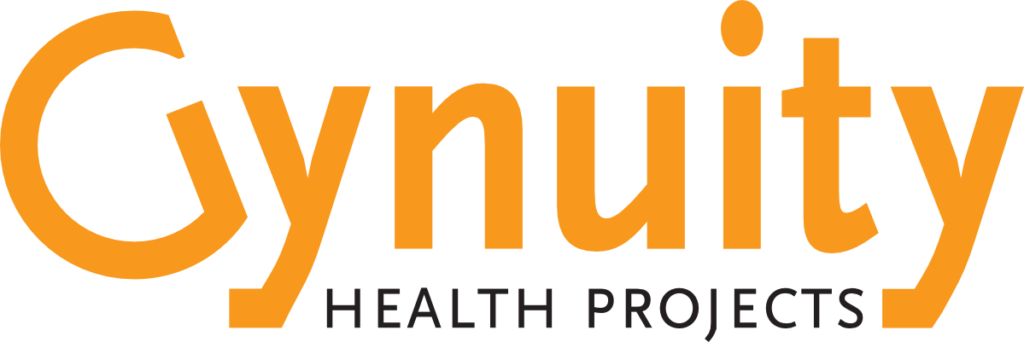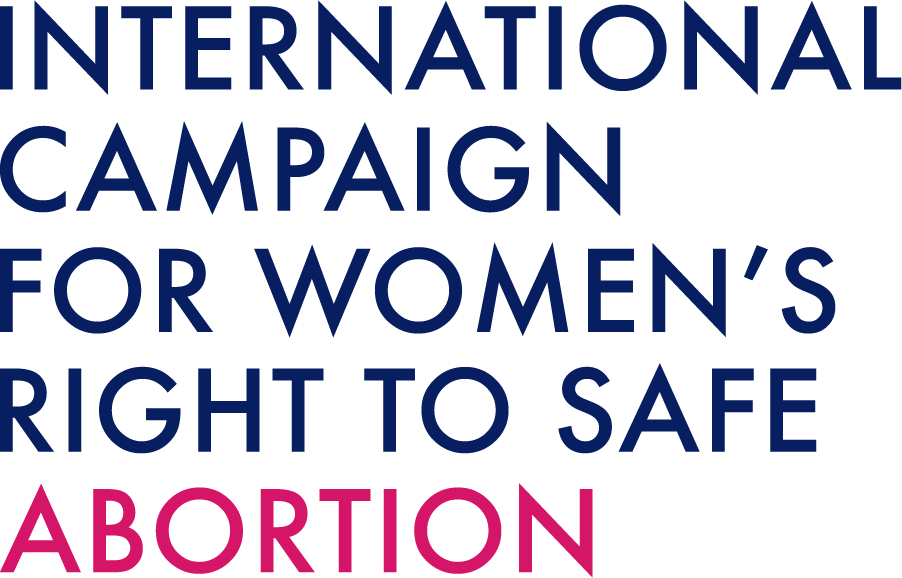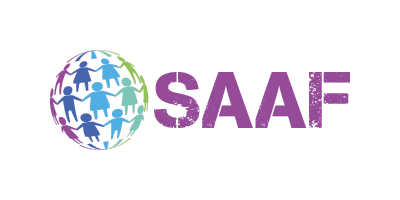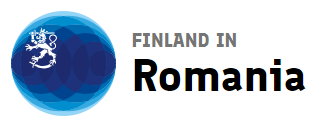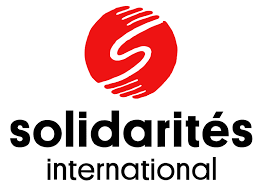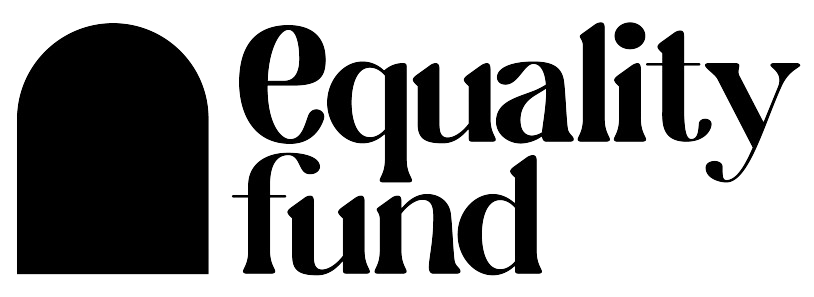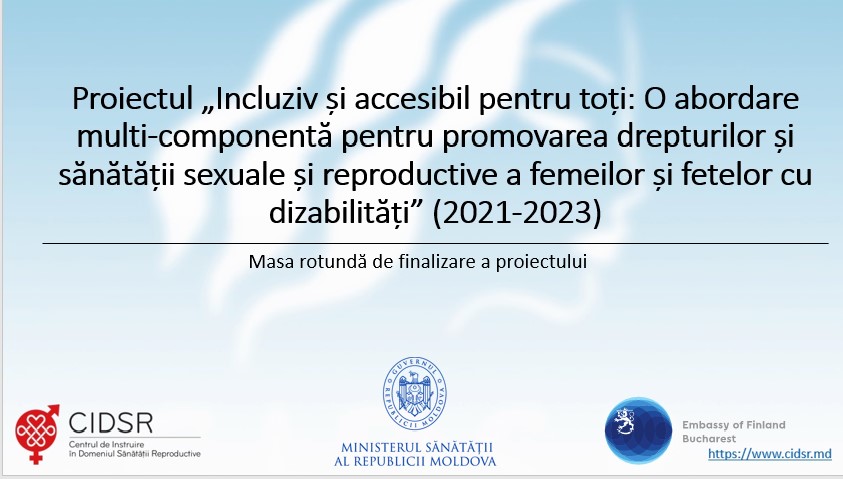
RHTC organised the Closing Roundtable of the project “Inclusive and accessible for all: A multi-component approach to promoting the sexual and reproductive health and respecting the rights of women and girls with disabilities”[:]
 On 26 April 2023, RHTC organised the Closing Roundtable of the project “Inclusive and accessible for all: A multi-component approach to promote the sexual and reproductive health and rights of women and girls with disabilities”, funded by the Embassy of Finland in Bucharest under the Local Cooperation Fund.
On 26 April 2023, RHTC organised the Closing Roundtable of the project “Inclusive and accessible for all: A multi-component approach to promote the sexual and reproductive health and rights of women and girls with disabilities”, funded by the Embassy of Finland in Bucharest under the Local Cooperation Fund.
The event highlighted the results of the project in the field of advocacy and in empowering girls and women with disabilities to exercise their rights, as well as in strengthening the skills of professionals to be better prepared to support beneficiaries with special needs in exercising their rights and accessing sexual and reproductive health services.
At the same time, at the event the participants also discussed actively about the need to establish the next steps in order to make the necessary changes to promote fully inclusive services, information, policies and infrastructure in the area of sexual and reproductive health and rights for people with special needs.
The event gathered representatives of the Ministry of Health of the Republic of Moldova, Ministry of Labour and Social Protection of the Republic of Moldova, National Agency for Public Health, National Council for Disability Determination, National Social Assistance Agency, State University of Medicine and Pharmacy “Nicolae Testemitanu”, UPS Ion Creanga State Pedagogical University of Chisinau, UN Office for Human Rights Moldova, UNFPA Moldova, UN Women Moldova, MOTIVATIE Association of Moldova, YK Neovita. The project beneficiaries also participated, as well as representatives of organizations working in the fields of sexual and reproductive health, law, disability.
At the Round Table, Tatiana Zatâc, Head of the Directorate for Primary, Emergency and Community Health Care Policy in the Ministry of Health, said, “This event is important, because throughout the project we have been with those who implemented it and we have closely followed every step that was taken. The project was dedicated to people, in particular, women with disabilities who have the right to quality sexual and reproductive health services. This issue is important and is in the global spotlight”.
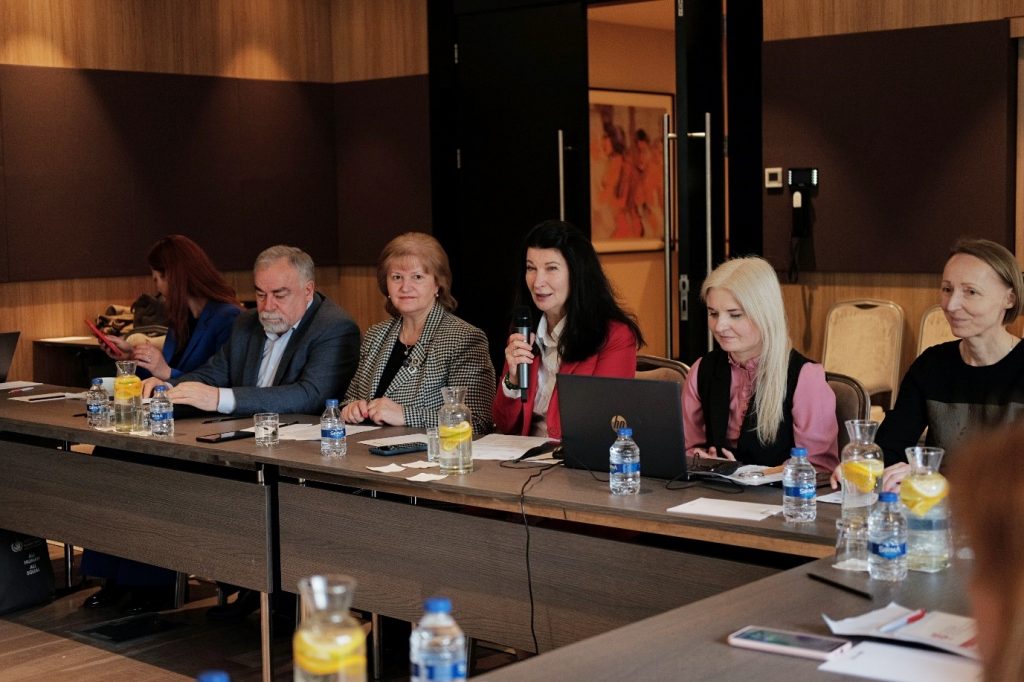
She also added: “It is very important that the services we are developing are useful for all women, without exceptions or discrimination, and this project has involved numerous information sessions, the development of a guide that has been distributed to family doctors, plus the promotion of the important issue of providing access to specially equipped medical offices for people with disabilities”.
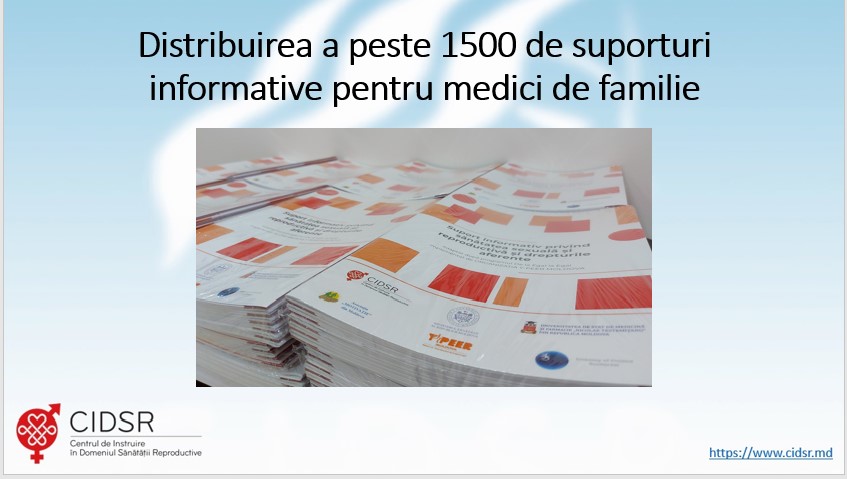
In her speech at the Round Table, Ms Zatâc also mentioned that “RHTC is a promoter of change, being an example centre where these services are accessible to all women, whether they have a disability or not.”
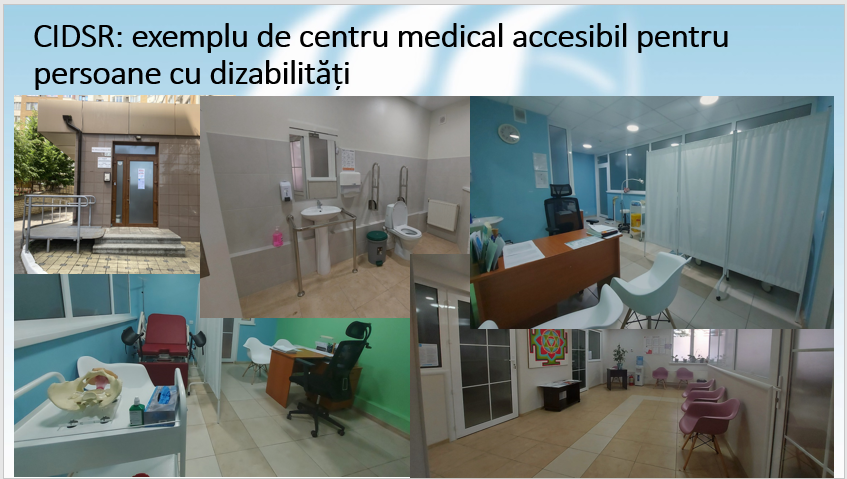
“The information materials produced as part of this project are extremely useful for the medical community, but also for society in general. Medical institutions must and will become more accessible, it is very important that the sexual and reproductive health rights of women with disabilities are respected.”
The project aimed to actively promote fully inclusive sexual and reproductive health (SRH) services, information, policies and infrastructure for women and girls with disabilities.
An important objective of the successful implementation of this project was to improve the existing practices of specialists to ensure that women and girls with disabilities obtain quality sexual and reproductive health information and assistance.
During the Round Table, Maria Vârlan, Dean of the Faculty of Psychology and Special Pedagogy, UPS “Ion Creanga”, declared that within the framework of this project “the disciplinary program was updated and modified, and this process is being approved for 3 higher education programs (bachelor and master) in the field of Social Work”.
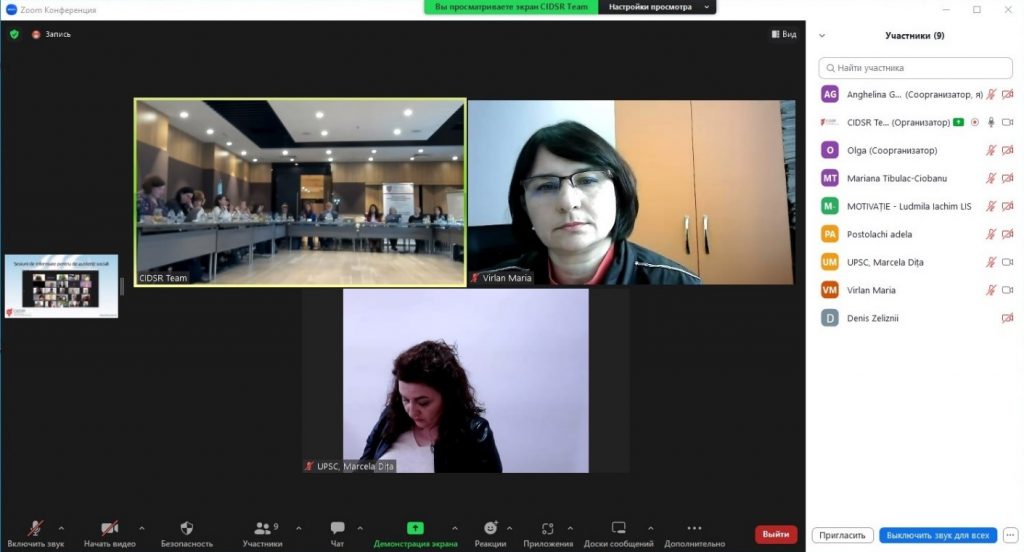
The dean also mentioned: “The collaboration with RHTC has been another professional achievement for us and has made us even more ambitious to start modifying and updating the curriculum in order to prepare professionals, social workers properly trained in providing effective services to people with disabilities. We appreciate the effort of the RHTC team in ensuring that the training of social workers in this field is continuous, so our Library has been enriched with the booklets produced within this project, materials that provide essential information in this field for students.”
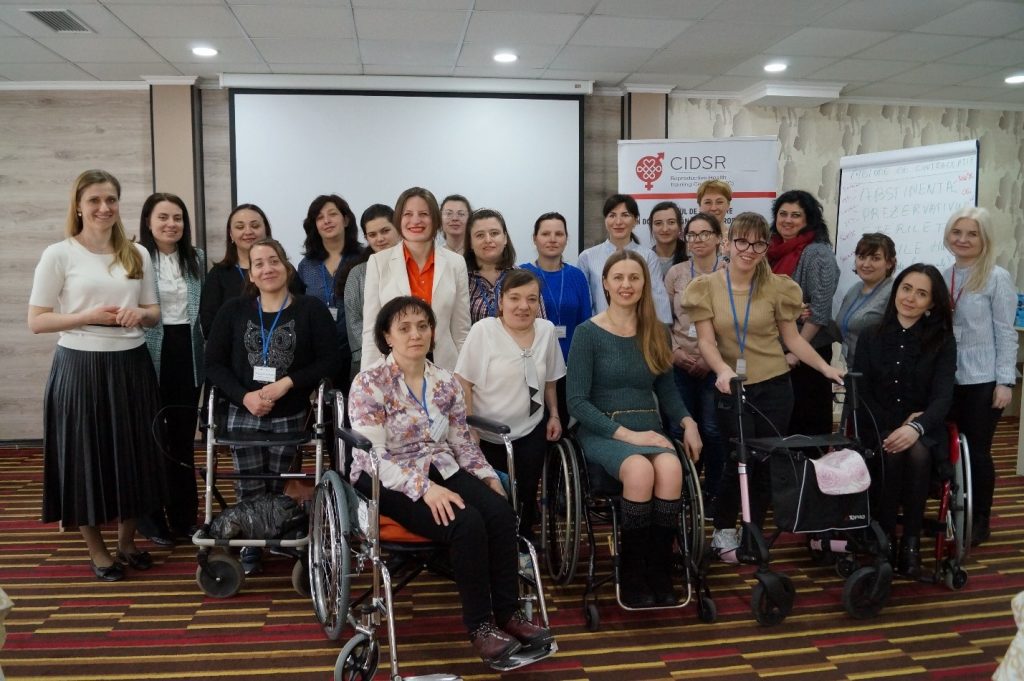
One of the primary objectives of the project was to develop the capacity of women and girls with disabilities to exercise their sexual and reproductive rights and to enable them to pass on knowledge of sexual and reproductive health and rights (SRHR) to the community.
Xenia Siminciuc, Human Rights Officer, UN Office for Human Rights (OHCHR Moldova) said: “What is very important is that progress is seen through the positive feedback and experience of the beneficiaries in this project, through this we can measure success and predict its continuity.”
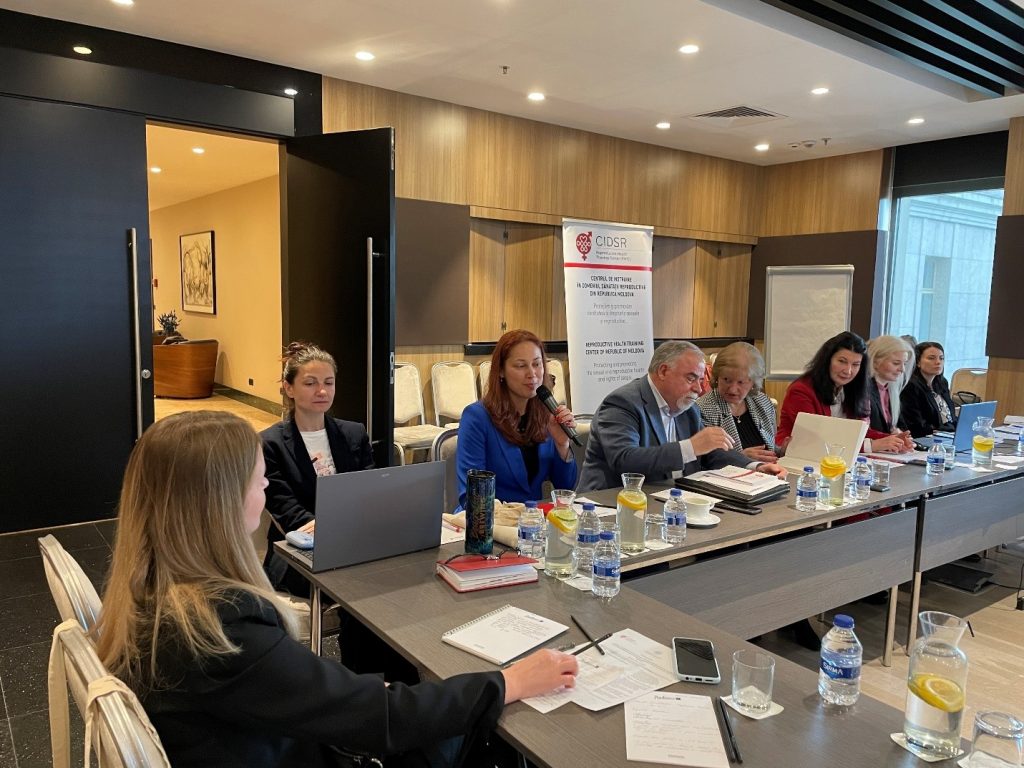
During the Round Table, Ms Rodica Comendant, Director of RHTC, pointed out that “Women and girls with disabilities told us that they believe they have the same rights as any other person to a healthy sexual and reproductive life, they believe they have the right to create a family, to be involved in a relationship and to give birth to children, that they have the right to quality health services and that they have the right to more comprehensive information.”
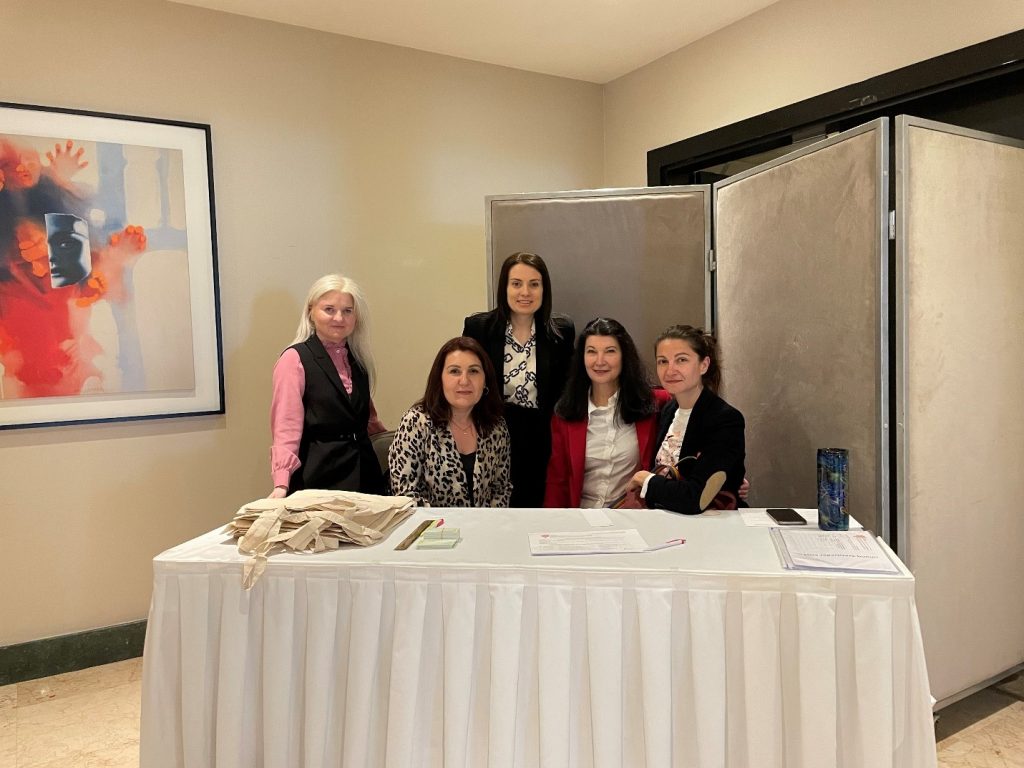
“Disability in their view is not an impediment, an impediment is the lack of access to quality medical services in medical institutions, for example: the lack of a gynaecological practice adapted for people with special needs, or the discriminatory attitude they face…etc. At the same time, within this project, we have also established that they, even if they could benefit from these medical services, feel ashamed and refuse to see a specialist. At the same time, I would like to mention that society in general is poorly informed about the needs of women and girls with disabilities, especially in terms of sexual and reproductive health, and society is unaware of the problems they face.”
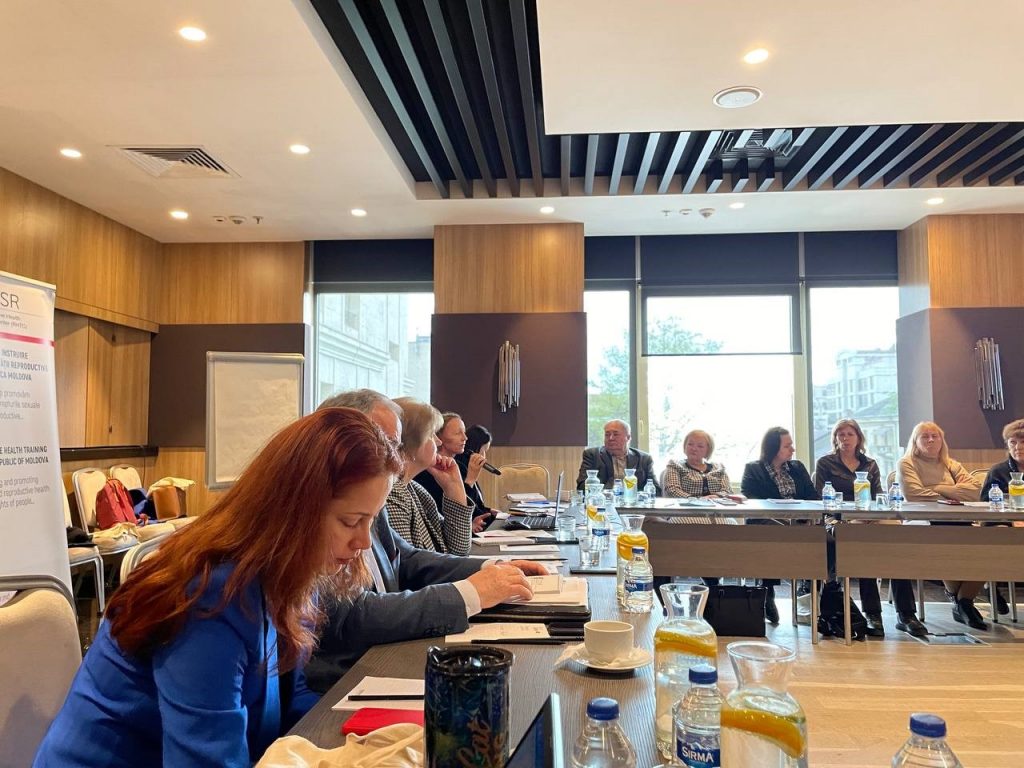
The Roundtable was also attended by Ms Eugenia Berzan, Programme Analyst in Sexual and Reproductive Health, UNFPA. She emphasized that: “This is not the first successful project completed by RHTC and we are glad that there is continuity in everything this organization does, because this is the only way to achieve long lasting results. The heroines who took part in the motivational videos, made during the project, are real champions, because they have shown through their own life stories that everything is possible and that all the myths, stereotypes and prejudices that exist in society must and can be fought.”
VIDEO – Girls and women with disabilities talk about their sexual and reproductive health and rights
As part of the project, RHTC succeeded in adapting an Information Support in SRHR into a format accessible to the visually impaired (Braille and audio book). The audio book and 80 booklets in Braille have been distributed and can be accessed by visually impaired people in branches of the special library and 37 territorial organizations of the Association of the Blind of Moldova throughout the country, including the Transnistrian region. The audio book can also be accessed on the RHTC Youtube channel:
AUDIO BOOK – Information support in sexual and reproductive health and rights
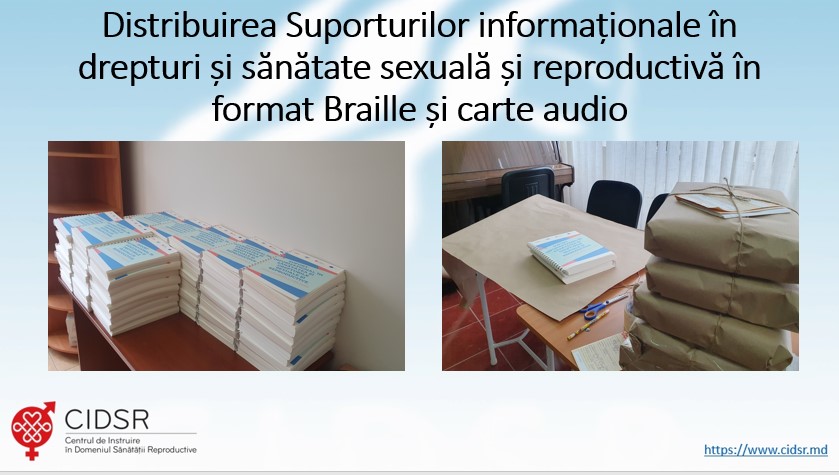
At the event, Dumitru Sclifos, President of the Association of the Blind of Moldova, said, “I would like to thank the Embassy of Finland in Bucharest for supporting this project, very welcomed and important for women and girls with disabilities, I hope that this project will strengthen and improve their level of knowledge on topics related to sexual and reproductive health rights.”
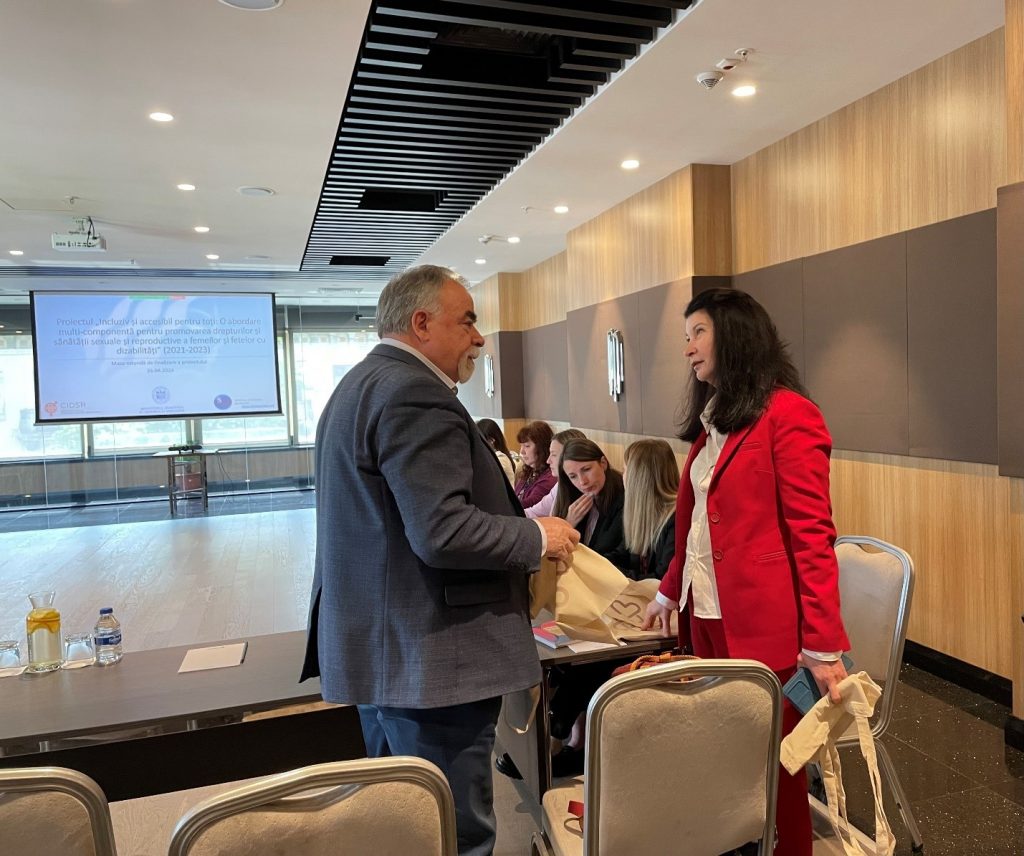
The general conclusions of the dialogue within the Round Table referred to the need to develop indicators in the field of sexual and reproductive health, in order to collect data segregated by disability criteria.Another emphasis was put on the need for intersectoral collaboration on the issue of sexual and reproductive health and rights of people with psychosocial and intellectual disabilities in sheltered services, community homes or temporary placement centeres. The participants also discussed about the cumulative efforts of specialized organizations in advocacy for the promotion of the sexual and reproductive rights of people with disabilities and access to adapted medical services.
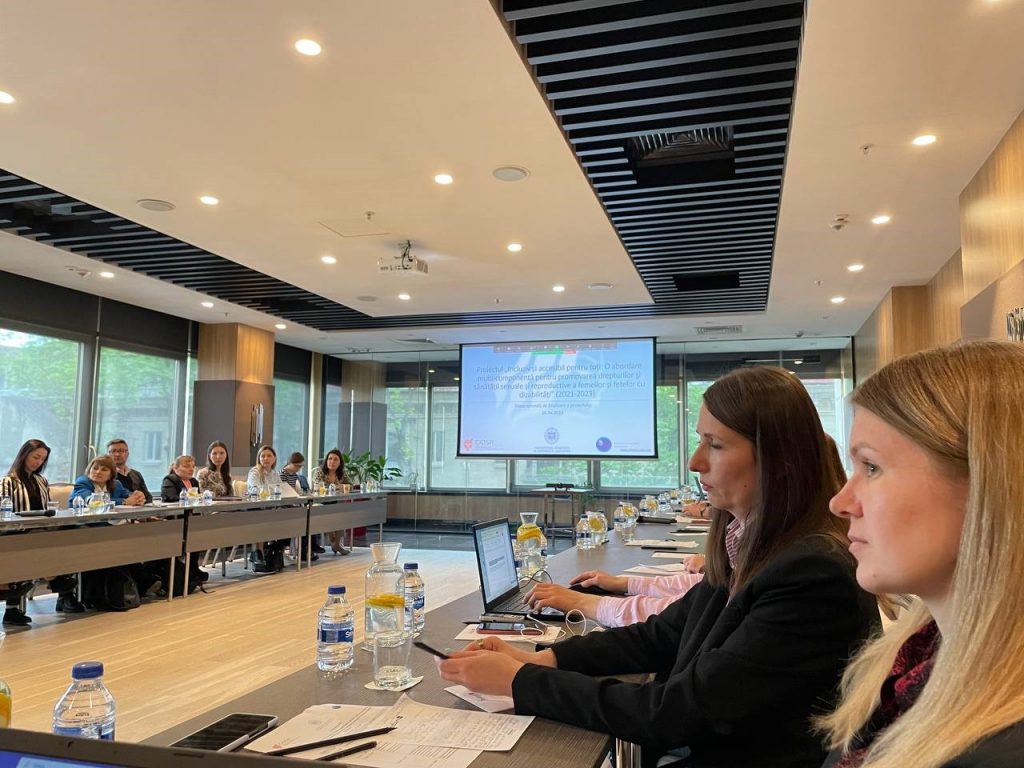
The discussions concluded with the submission of a set of proposals and action steps to improve respect for rights and access to quality sexual and reproductive health services for people with special needs.
The project “Inclusive and accessible for all: A multi-component approach to promote the sexual and reproductive health and rights of women and girls with disabilities”, was funded by the Embassy of Finland in Bucharest under the Local Cooperation Fund.
For a detailed account of the results of the project we recommend you to consult the documents attached to the article.
[:]



